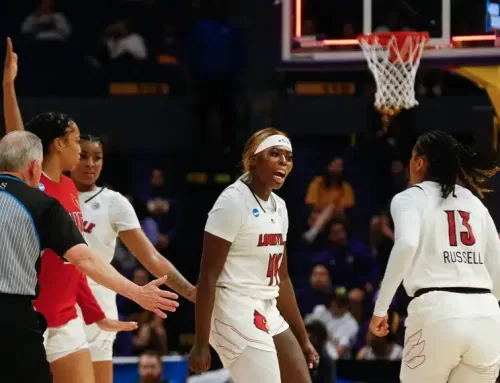By Simon Isham–

Four out of the nine Supreme court justices are required to allow the case to be be heard, but they do not necessarily have to oppose or support the Defense of Marriage Act.
Name: Sonia Sotomayor
Age: 58
Track record: Attempted to avoid the question of same-sex marriage in her 2009 Supreme Court nomination hearing.
Remarks: “If the issue is letting the states experiment and letting the society take time to figure out its direction, why is taking a case now the answer?”
Name: Stephen Breyer
Age: 74
Track record: Voted in “Romer v. Evans” in 1996 that GLBT should be recognized as a constitutionally protected class.
Remarks: “There has been this uniform, one man, one woman rule for several hundred years, and there’s a revolution going on in the states. We either adopt the revolution or push it along a little, or we stay out of it.”
Name: Samuel Alito
Age: 63
Track record: Chaired a student conference at Princeton in 1971 advocating for the decriminalization of sodomy and equal opportunity protections for homosexuals.
Remarks: “You want us to step in and render a decision based on an assessment of the effects of this institution, which is newer than cell phones or the Internet?”
Name: Elena Kagan
Age: 52
Track record: Defended DOMA in her 2010 appointment hearing on the grounds that it is an existing law.
Remarks: “If you are over the age of 55, you don’t help us serve the government’s interest in regulating procreation through marriage. So why is that different? … I can assure you, if both the woman and the man are over the age of 55, there are not a lot of children coming out of that marriage.”
Name: John Roberts
Age: 58
Track record: Worked as a pro-bono lawyer for “Romer v. Evans” in 1996 defending the rights of homosexuals applying for jobs and housing.
Remarks: “There are some 40,000 children in California … that live with same-sex parents, and they want their parents to have full recognition and full status. The voice of those children is important in this case, don’t you think?”
Name: Clarence Thomas
Age: 64
Track record: Voted in “Romer v. Evans” in 1996 that GLBT should be not recognized as a constitutionally protected class.
Remarks: Justice Thomas has made no comments about the most recent hearing.
Name: Antonin Scalia
Age: 77
Track record: Objected to the decriminalization of gay sex in “Lawrence v. Texas” in 2003.
Remarks: “They’re arguing for a nationwide rule which applies to states other than California, that every state must allow marriage by same-sex couples even though states believe it is harmful (to children) — and I take no position on whether it’s harmful or not, but it is certainly true that there’s no scientific answer to that question at this point in time.”
Name: Anthony
Kennedy
Age: 76
Track record: Said in “Lawrence v. Texas” in 2003 that judges would soon declare same-sex marriage to be the policy of the U.S.; is expected by analysts to be the swing vote.
Remarks: “I just wonder if this case was properly granted.”
Name: Ruth Bader
Ginsburg
Age: 80
Track record: Dissented in “Boy Scouts of America v. Dale” in 2000, saying that Boy Scouts should be required to accept gay scoutmasters.
Remarks: “If we are totally for the states’ decision that there is a marriage between two people, for the federal government to then come in and say no joint return, no marital deduction, no Social Security benefits; your spouse is very sick but you can’t get leave … if that set of attributes, one might well ask, ‘What kind of marriage is this?’”
The Defense of Marriage Act, which was signed into law by Bill Clinton in 1996, is set to cause a stir when it is called up on the Supreme Court docket for consideration at the end of June.
But it is not only in Washington that DOMA has elicted strong reactions — voices of contention are springing up on U of L’s campus as well.
“I believe that DOMA is one of the world’s most literal representations of hipocricy, a radical ruling meant to supress citizens in a country that prides itself on diversity and being the home of the brave. It’s aggravating to say the least,” Steve Molina, a junior sports administration major told the Cardinal.
In the broader Louisville community, the discussion of DOMA has largely been sponsored by the American Civil Liberties Union of Kentucky, which brought DOMA attourney James Esseks to town with an update.
Esseks, who served as petitioner Edith Windsor’s legal counsel in her March hearing before the Supreme Court, spoke to an audience on April 25 at the Kentucky Center for the Performing Arts, telling them that “Based on the questions the justices asked at argument, I’m guardedly optimistic that we’re going to get a good decision.”
Paul Clement, the lawyer for the Bipartisan Legal Advisory Group who argued in favor of DOMA this March, is not so optimistic about his own case. He told the court during his three-minute rebuttal in March that he believed DOMA woulde eventually be struck down through democratic processes, but that there was no need for the Supreme Court to involve itself with the issue.
[email protected]
Graphics by Simon Isham/The Louisville Cardinal




